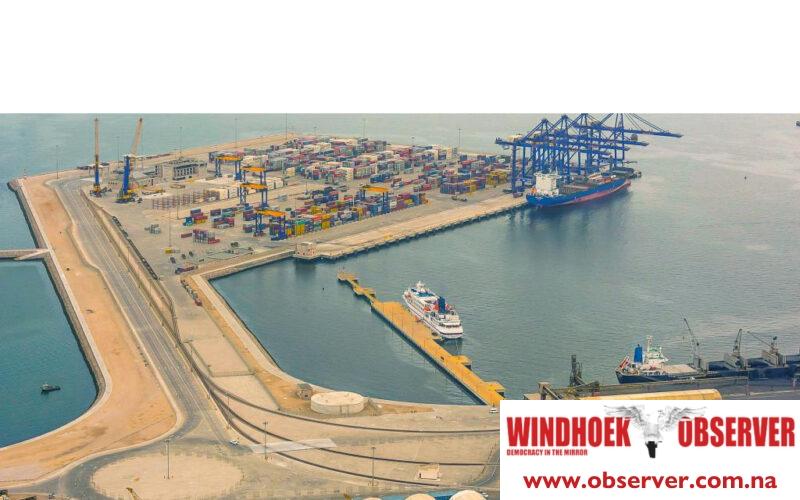Niël Terblanché
The European Union (EU) has pledged about N$20 billion Euros in support of an ambitious initiative to enhance the development of Namibia’s main port in Walvis Bay.
Namibia’s main harbour is, amongst others, viewed as a crucial gateway to the Walvis Bay – Maputo Corridor.
This initiative is part of the EU-Africa Global Gateway Investment Package, which seeks to bolster eleven strategic corridors, including this vital transport link.
The momentous partnership was unveiled by the President of Namibia, Hage Geingob, and the President of the European Commission, Ursula von der Leyen, on the eve of the Global Gateway Forum in Brussels, marking a significant step in fostering international cooperation.
President Geingob expressed his pride in Namibia’s role as a frontrunner in the green hydrogen sector, stating, “Thanks to its abundant renewable energy potential, Namibia is becoming a front-runner in the green hydrogen space. The EU is proud to be a partner in this transformative journey towards green industrialization. Together we can further decarbonize our economies, create jobs, and ensure a more prosperous and greener future for our societies.”
Von der Leyen acknowledged Namibia’s world-class renewable energy resources as the foundation for building a sustainable and impactful green industrial base. She stressed the importance of mobilizing capital that appropriately prices risk to optimize costs for achieving their shared goals.
Located on the west coast of Africa, Walvis Bay holds a critical position as a natural gateway for international trade to the Southern African Development Community (SADC), home to more than 300 million people.
Recognizing its strategic importance, the EU has entered into a strategic partnership with Namibia, with a focus on sustainable raw materials and green hydrogen.
The EU’s commitment to this partnership includes a substantial investment of N$20 billion from the EU and its member states.
One of the key components of this support is the funding of a comprehensive study aimed at transforming the Port of Walvis Bay into a regional logistics and industrial hub for the green hydrogen and derivatives economy.
This development is expected to not only enhance international trade but also drive economic growth in the region.
Namibia’s dedication to the green transition aligns perfectly with the EU’s goal of ensuring a sustainable supply of raw materials, especially critical ones, for green and clean energy.
In addition to its financial support for the Port of Walvis Bay, the EU will also collaborate with the Namibian Ports Authority to achieve operational excellence, further strengthening the port’s capabilities.
The strategic partnership between Namibia and the EU outlines a roadmap for the years 2023 to 2025, encompassing six key pillars: value chain integration, environmental criteria, infrastructure funding, capacity building, research and innovation, and regulatory alignment.
This collaboration will involve close cooperation with financial and private sector stakeholders to achieve these objectives.
The EU has established similar partnerships with other resource-rich countries to strengthen secure and resilient raw materials value chains.
Jutta Urpilainen, the Commissioner for International Partnerships, stressed the significance of the expansion of the Port of Walvis Bay to cater to the emerging green hydrogen industry as a demonstration of mutually beneficial Global Gateway cooperation.
“We are strengthening sustainable value chains and strategic transport corridors in Africa and delivering on the green and digital transitions in both Namibia and the EU. The roadmap adopted today is a tangible follow-up to January’s discussions in Windhoek,” she added.
She added that the agreement provides the framework for Team Europe members to identify high-potential projects, mobilize investments, and boost skills training along the renewable hydrogen and raw materials value chains.
This historic partnership between Namibia and the EU signifies a bold step towards a greener, more sustainable future for both regions and holds the promise of significant economic and environmental benefits for all involved.




